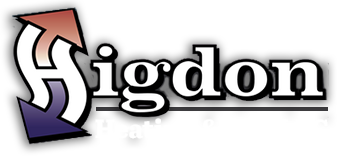Although you’re probably already using your heating unit to warm your home or business during these chilly fall months, you should still consider setting aside a couple hours one of these weekends to perform a furnace check. At that time, you will want to clean components and fix damaged parts, as well as investigate any suspicious sounds, odors or wear and tear. You may even want to invest in a full system tune-up—especially if your heater is older or if it’s been a long time since its last service.
By making sure your heating unit is in good working order before heavy wintertime use, you can avoid costly furnace repair in Cleveland, TN. Here are a few tips for properly preparing your furnace for winter.
Replace furnace filter
When a heating system is turned on, inside air is pulled through the vents and ducts to help circulate the warm heater air. Because air filters are made to filter out indoor air contaminants, as long as the system is turned on, dust, mold, pet dander and other airborne particles will also get sucked in. That is why it’s important to replace air and furnace filters often. Don’t let a clogged filter block airflow!
Check fan belt
Also referred to as the blower belt, the fan belt must be in good condition if it’s to work right. Check the belt for wear and tear—like cracks and rips—and make sure it is on tight to avoid using excess power or gas. Otherwise, it may take a long time to warm up the inside of a building.
Clean air vents and ductwork
Got a vacuum and a damp cloth? If so, you can do a basic cleaning job on your home’s air ducts and vents—but hire the pros for a more thorough cleaning every now and then. Remove vent grate covers, wipe them down and then use the vacuum brush or nozzle attachment to suck up trapped dust and other debris from inside ductwork. If you have floor vents, be aware that small items may have fallen inside. Take them out before vacuuming.
Inspect ducts for leaks
You might feel as though you’ve got a leaky air duct, but since ductwork is concealed within walls, ceilings and floors, a homeowner can have a difficult time locating the source of leaks. Before calling an HVAC expert, turn the heater on and go from room to room feeling for a strong stream of warm air coming through; a weak streak could mean a leaky duct. Also, watch for other signs of leak troubles—like dust blowing in from a vent. If you have a damaged section of ductwork, you can expect the air to struggle as it attempts to pull past leaky spots, which is why less hot air will make it inside your home.
Make sure your residential or commercial heating unit is operating as it should, and you, your family or employees will have a better chance of getting through the winter months all warm and toasty. For new heater unit installation, emergency HVAC services or furnace repair in Cleveland, TN, don’t hesitate to contact the professional team at Higdon Heating & Air LLC!
